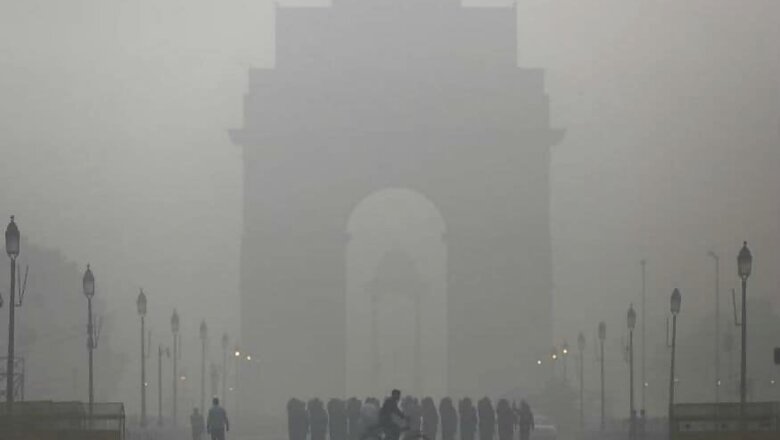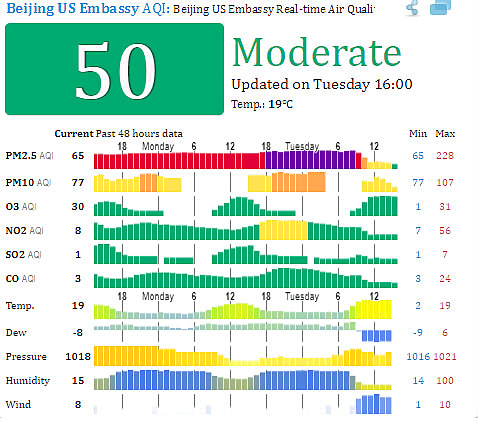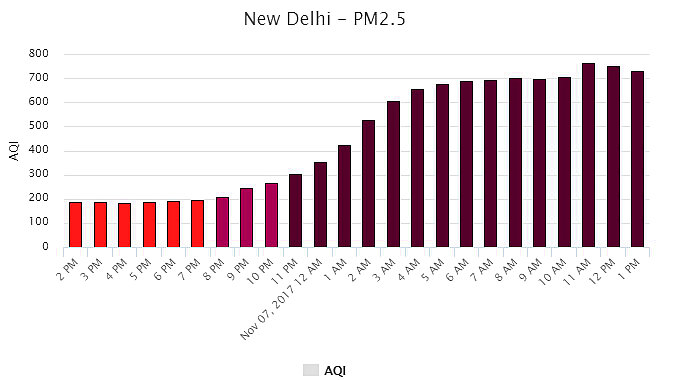
views
New Delhi: For the second day in a row Delhi woke up to a white blanket and no visibility. The roads turned into some mysterious pathway that could barely be seen, the iconic India Gate and Rajpath had almost disappeared and it seemed like we have reached what’s called the ‘upside down’ in Stranger Things. And there was no Eleven to save us.
This was the ‘severe’ air that we were breathing, as pollution levels breached the permissible standards by multiple times.
The Delhi government has advised that all junior schools - private and state-run - will be closed on Wednesday. Meanwhile, residents have been asked to avoid morning and evening walks.
On Tuesday morning, according to the US Embassy’s air quality index, the city’s PM2.5—a harmful air pollutant--read above 600. Meanwhile, China’s Beijing which is known to have the worst reputation when it comes to air pollution is nowhere close to the Indian city. Their PM2.5 reads at 65.


The air that Beijing residents breathe are still not clean enough, but it definitely puts us to shame. What have they done that we can’t do?
We asked our Twitter followers what should the Delhi government do, and most of them thought declaring a ‘health emergency’ would be a better measure than bringing back the odd-even rule and shutting down schools temporarily.
Delhi Air Quality Index at 'Severe' Level. Indian Medical Association calls for quick measures. What should @ArvindKejriwal govt do? — News18 Politics (@News18Politics) November 7, 2017
Declare a war on pollution
It took China an “airpocalypse” year of 2013, which saw the Air Quality Index level hit 755 (the top end of the scale is supposed to be 500) to declare a war on pollution. They formed the National Air Pollution Action Plan, a four-level alert system and reserved 7.5 trillion rupees (760 billion yuan) to get its act together.
For Delhi, smog and pollution have become a routine. Every year an “airpocalypse” hits us right after Diwali and during the crop-burning season. But we clearly don’t think it’s strong enough to act on it.
Put the money where needed
In February this year, the Beijing government announced a year on year 23% hike to its environmental protection and energy efficiency budget. More than half of the total budget of 33.8bn yuan (£4bn) is earmarked for improving air quality.
At the same time, in our country, the Environment Ministry got an increase of nearly 19 per cent in its budgetary allocation. The Union Budget proposed an allocation of Rs 2,675.42 crore for the Environment Ministry for 2017-18 in comparison to last fiscal where it was alloted Rs 2,250.34 crore. However, Centre for Science and Environment (CSE) said that “the budget has failed to even acknowledge the problem of pollution, which simply indicates that environment is not a priority concern for this regime.” In fact, the word ‘pollution’ wasn’t even mentioned once in the entire budget speech. Increasing the budget for the environment ministry isn’t enough. It’s important to implement the necessary projects.
Crack down
In 2015, the environmental protection bureau of China’s capital city handed out fines worth 183m yuan (£21.5m) for pollution law violations. The city’s municipal government also stepped up spot checks on polluters, putting 170 companies on a watch list. “The penalties are harsh and implementation [in Beijing] isn’t as hard to do as it is elsewhere,” Angel Hsu, assistant professor of environmental studies at Yale-NUS College had told The Guardian.
In comparison, the crackdown on India’s national capital is just another act. Despite the National Green Tribunal (NGT) directing all land owning agencies in Delhi to impose a fine of Rs 5,000 on persons found burning waste in the open and Rs 5 lakh fine on the owners/builders, who are found violating dust control measures, very little has been done. If the cost of disobedience is not made severe, how will it really work?
Greater Teeth To Environmental Officials
China’s environment protection law which was amended for the first time in 2014 gives more powers to environmental officials. The tougher action on polluting business, particularly factories and construction sites is possible because of that. The law gives them power to detain company bosses who don’t complete environmental impact assessments.
Meanwhile, in India, we are weakening the powers of the environmental watchdog—the National Green Tribunal (NGT). The NGT has struck down several projects that threatened the ecology and forced government officials to take action. However, the Union government modified the process of appointments, accusing the NGT of judicial overreach. The new rules do away with a condition that the NGT can only be headed by a former Supreme Court judge or the chief justice of a high court, essentially taking away the judiciary’s control on the appointment of the tribunal’s members
The pollution level reflects yet again that we are just not serious enough about tackling it. Will it take an airpocalypse for Delhi to stop polluting?


















Comments
0 comment